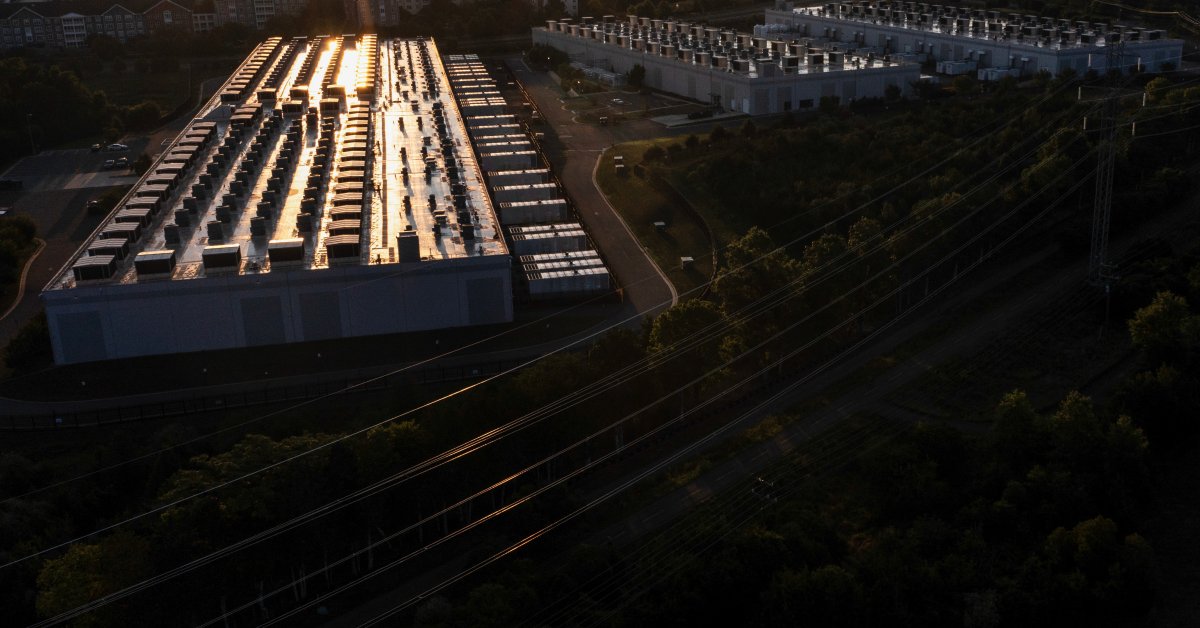China's AI Espionage Threat: Datacenter Vulnerability Exposes Global Risks
The escalating tensions between the US and China extend beyond geopolitical maneuvering; a silent, sophisticated threat lurks within the very heart of our digital infrastructure: datacenters. Concerns are mounting over China's potential use of Artificial Intelligence (AI) to exploit vulnerabilities in these critical hubs, raising significant espionage risks for businesses and governments worldwide.
The Silent Infiltration: How AI Enables Espionage
Traditional espionage tactics are being augmented by AI's powerful capabilities. China's sophisticated AI-driven systems can automate several stages of cyberattacks, making them more efficient, harder to detect, and ultimately, more dangerous. Here's how:
-
Targeted Data Breaches: AI can analyze vast amounts of data to identify weak points in datacenter security, pinpointing vulnerabilities with surgical precision. This allows for highly targeted attacks focused on specific, high-value data.
-
Automated Phishing and Social Engineering: AI-powered tools can create convincing phishing emails and social engineering campaigns, tricking employees into revealing sensitive credentials or downloading malicious software. This grants access to the datacenter network itself.
-
Advanced Malware Deployment: AI can develop and deploy highly adaptable malware capable of evading traditional security systems. This malware can remain dormant for extended periods, exfiltrating data undetected.
-
Real-time Data Exfiltration: AI can accelerate data theft significantly. Once inside the network, AI algorithms can efficiently identify and transfer valuable information, making it challenging to trace the attack’s origin.
Datacenters: The Soft Underbelly of Global Infrastructure
Datacenters, while crucial for modern economies, represent a tempting target for sophisticated cyber espionage. Their centralized nature means a successful breach can expose a massive quantity of sensitive data, including:
- Intellectual Property: Trade secrets, research data, and technological advancements are easily compromised.
- Financial Information: Banking details, transaction records, and market data are prime targets for economic espionage.
- Government Secrets: National security intelligence, diplomatic communications, and classified information are at extreme risk.
- Personal Data: Massive personal data breaches can lead to identity theft and other significant consequences.
The Geopolitical Dimension:
The concern isn't simply about individual companies; this is a geopolitical issue. The theft of sensitive information from Western datacenters could give China a significant advantage in various sectors, including:
- Technological Advancement: Access to cutting-edge research and development could accelerate China's technological progress.
- Economic Dominance: Gaining control of financial information could provide a significant economic advantage.
- Military Superiority: Access to military intelligence could enhance China's defense capabilities.
Mitigating the Risk: A Multi-Layered Approach
Addressing this threat requires a comprehensive, multi-layered strategy:
-
Enhanced Cybersecurity Measures: Implementing robust security protocols, including advanced threat detection systems, intrusion prevention systems, and regular security audits, is crucial.
-
Employee Training: Educating employees about phishing scams and social engineering tactics is paramount in preventing initial compromises.
-
International Cooperation: Global collaboration is essential to share threat intelligence and coordinate responses to AI-driven cyberattacks.
-
Supply Chain Security: Scrutinizing the supply chain for vulnerabilities and ensuring the security of hardware and software is vital.
Conclusion:
The threat of AI-enabled espionage emanating from China presents a serious challenge to global security and economic stability. By understanding the risks and proactively implementing robust security measures, businesses and governments can better protect themselves from this evolving threat. The silent infiltration is happening; vigilance and proactive defense are our best weapons. Ignoring this risk is simply not an option.

